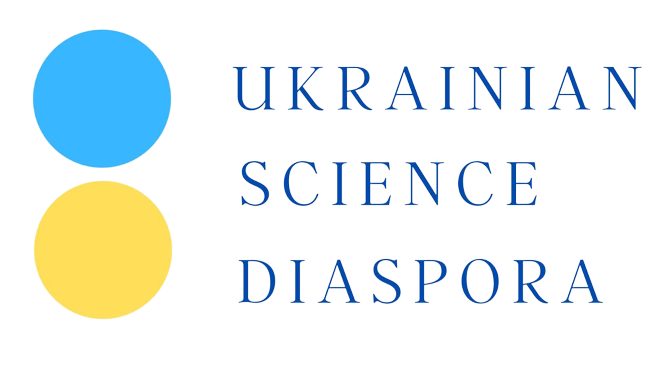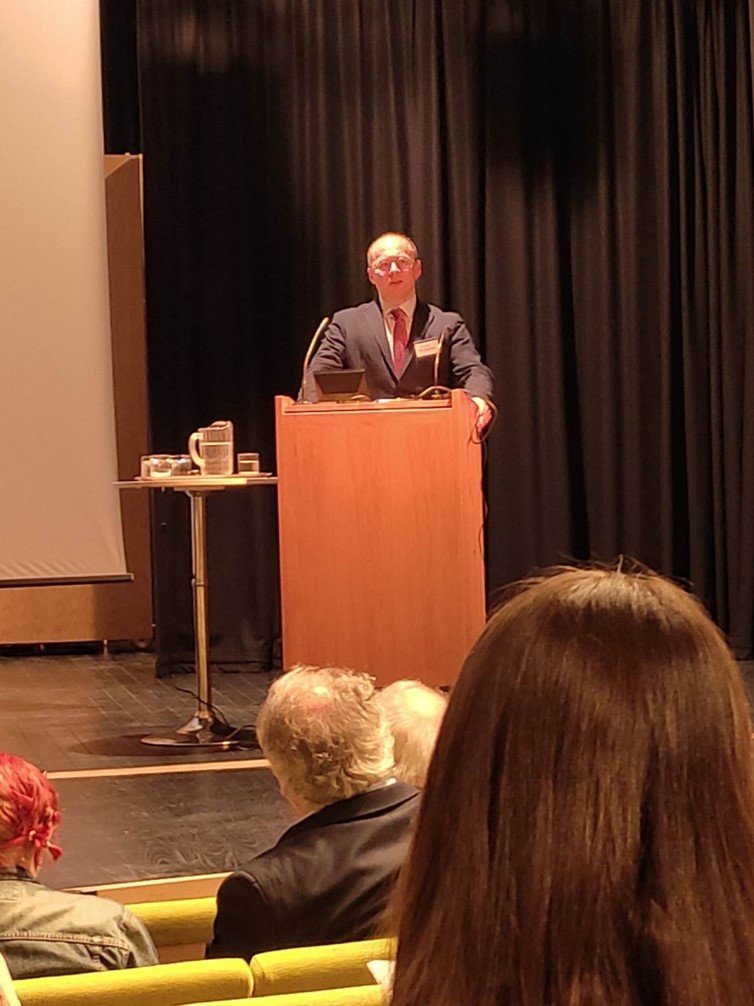Evacuation
In early March 2022, the Kharkiv regional administration evacuated me with other professors and students to western Ukraine. So did other Kharkiv HEIs at that time. In Zbarazh, I was settled in a free dormitory with other academic members, professors and students, and their family members, including children. The dormitory was provided by Zbarazh boarding school, which was empty then.
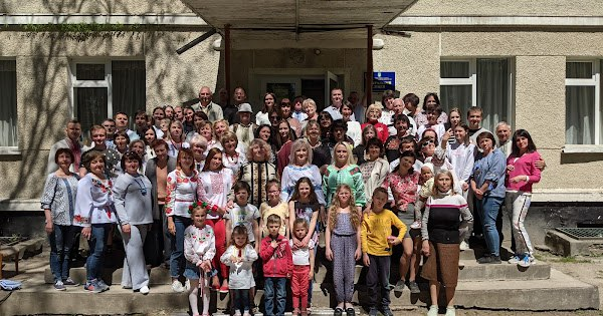
The Telegram group still has 63 subscribers, but there were many more, so the school’s big canteen required two shifts to serve everyone. The school’s dormitory is designed for 190 students, and the displaced people practically occupied all rooms[1]. Some rooms, if not all, had extra beds. My colleagues and I are very grateful to the school’s administration and staff for the accommodation, which allowed us to continue our educational work online and live safely.
All displaced people were disappointed, and depression was in the air. But people did not sit and wait passively, just doing their work online: some made camouflage nets, some organised a group to do handiwork, some helped the school’s administration, and one retired officer gave lessons of self-defence. Everyone participated in periodical works on cleaning the surrounding territory. I remember many proactive people. On my behalf, I set up every evening speaking club in English and occasionally historical excursions in Ukrainian over Zbarazh and its outskirts, having established connections with the local administration and churches, Catholic, Greek-Catholic, and Orthodox.
Speaking club in Zbarazh
Speaking club initially started only as meetings for speaking and sharing on different topics, from history and religion to virtual games and artificial intelligence, but gradually evolved into a more sophisticated project with its weekly schedule when some days were allocated to discussions, some to games, some to lectures of participants, some to walks, some to speaking with a native, and some to watching films with follow-up discussions. I had a model to follow, the project House in Kharkiv, when a group of volunteers created something similar for everyone and for free before the full-scale invasion of Ukraine.
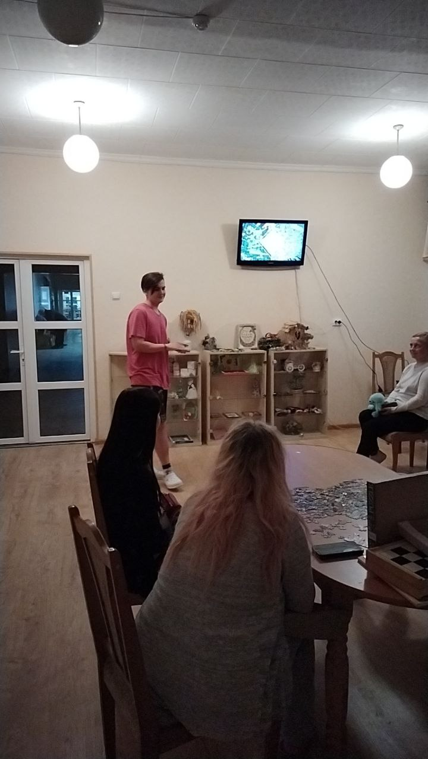
Many thanks to Jacob Dinneen for speaking to our participants every weekend. He is an American humanitarian worker whom I first met in Kharkiv when I organised his lecture at Simon Kuznets Kharkiv National University of Economics in 2021.
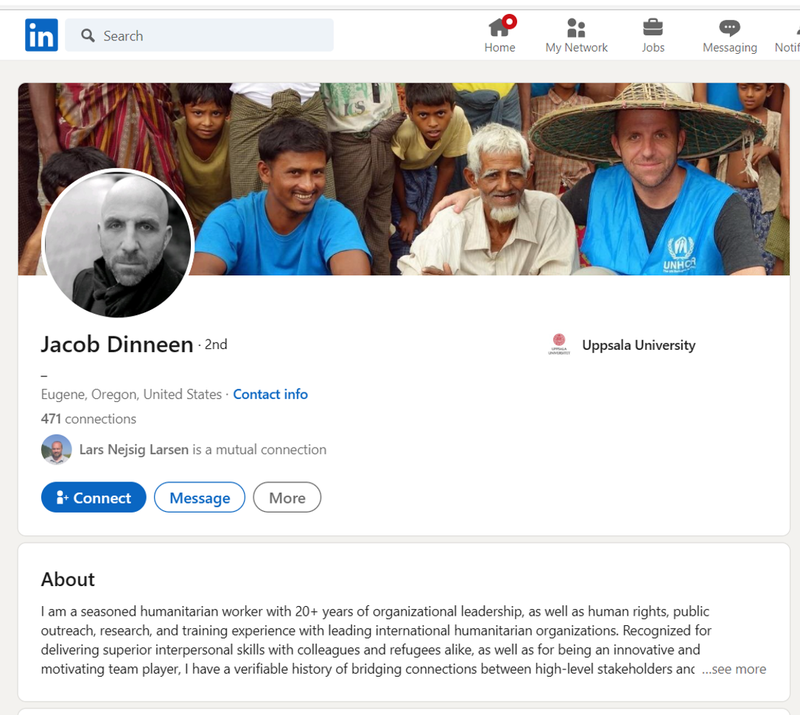
The speaking club worked all seven days a week. Activists drove the club when I could not be the host. Votes usually took decisions on what to watch, discuss or play.
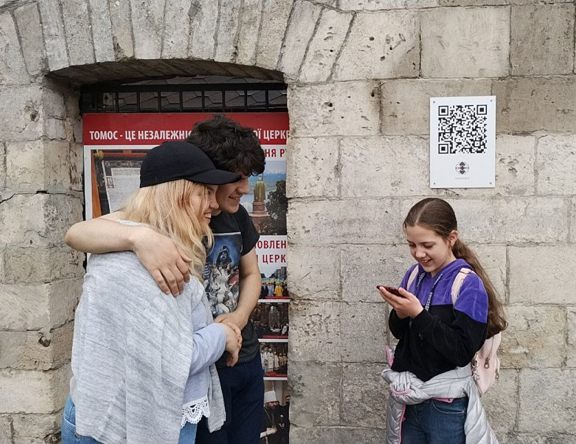
I believe this speaking club can be a model for making a network of similar units in Ukraine that will work in Ukrainian and English to fight post-traumatic stress. One practical psychologist, Olha, who participated in this club, wrote much later: «I remember our speaking clubs; to me, they gave support and a chance to communicate». Now, she provides psychological support for people in Kharkiv. I am thankful to her and others who participated in this project for supporting me as well. There were many initiatives from participants. Olha also made an activity, a game of communication between two groups playing tribes.
Zbarazh excursions
We were lucky to appear in Zbarazh, a small town in the Ternopil oblast. It is hidden in the province, but despite its size, it has a fascinating history. Many things can be said about its central castle, which attracts many tourists from Ukraine and, in peacetime, abroad. There is a nice Orthodox church on the hills in the outskirts, built in the seventeenth century and reconstructed several times afterwards.
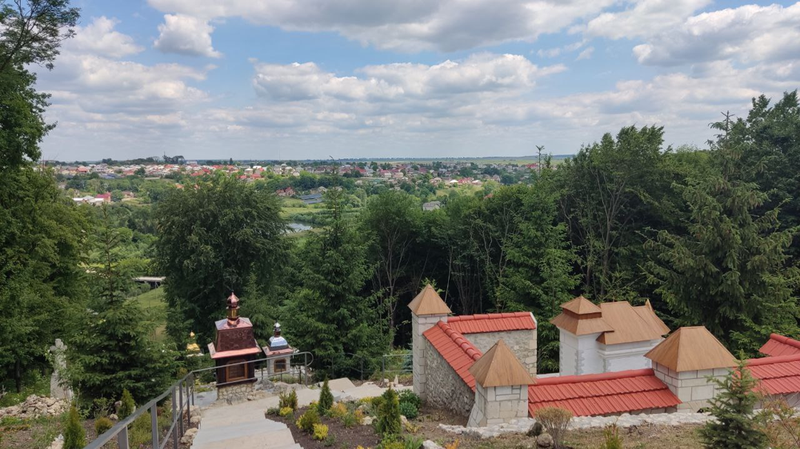
Indeed, some buildings are not in a good state, some shabby, some partly ruined, some almost in wholly decline, but Zbarazh opens itself to those who can read it as a book, seeing details and imagining what they were like in the distant past, back to the sixteenth century.
What is also interesting is that different Christian denominations peacefully coexist in such a tiny town, and this is an old pattern of life. One can find Catholic, Greek-Catholic, and Orthodox churches in the centre, very close to each other. The same pattern is in Kharkiv, my native city, in eastern Ukraine. All those churches in Zbarazh were built in early modern times and somehow survived through the Soviet period.
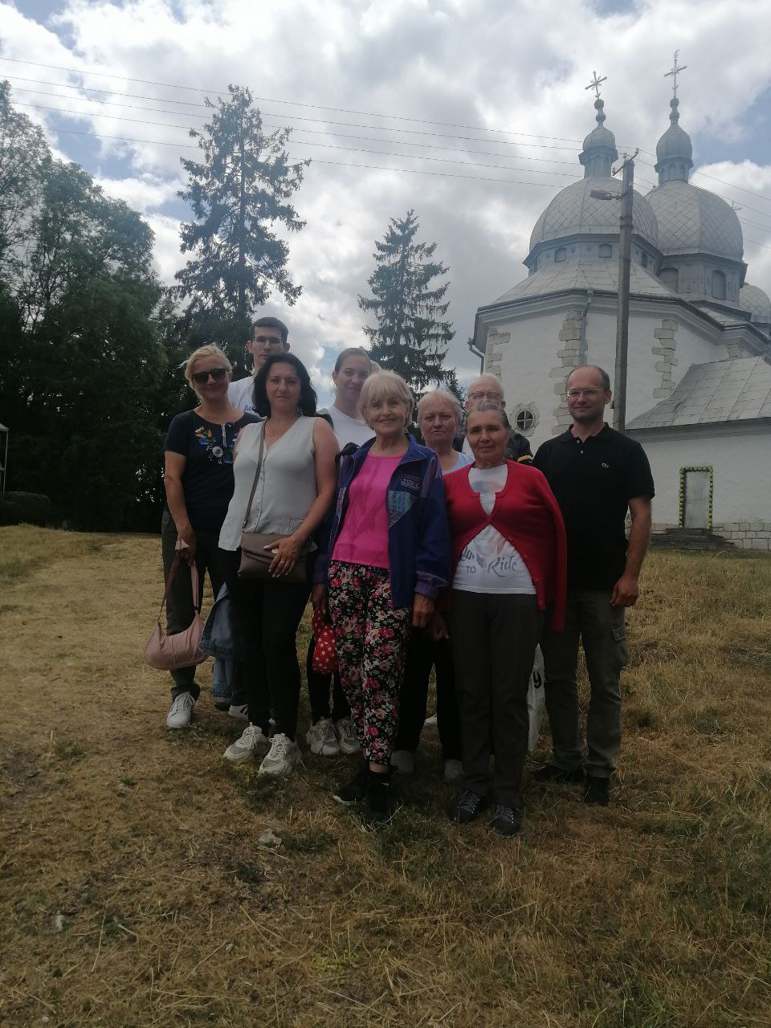
I soon found myself responsible for excursions when people began to ask me to organise this or that one. Preparing the first tour, I found a place, learned its history and then made a story for people. It was Spaso-Preobrazhenska Church, an Orthodox shrine in Zaluzhzhia or Old Zbarazh. One Greek-Catholic priest connected me to the Orthodox priest, Fr Mykhailo, who kindly agreed to tell us about the church and its history. On the way there, I led people and told them about the city and the church.
Nearby the church, we were met by Fr Mykhailo, who took over my role as the guide. He is an interesting storyteller who reminded me of the Ukrainian Renaissance clergymen who studied science and academia. Telling religious stories, he sometimes commented with academic facts, like historical reconstructions of the church and a history of its outskirts. Such an attitude made Ukrainian clergy different from Moscow ones in the seventeenth century.
Another excursion which I helped to set up was in a Catholic cathedral named The Cathedral Basilica of the Assumption of the Blessed Virgin Mary, which was founded in the late 14th century and rebuilt in stone in the early sixteenth century. The clergy community provided a guide and let us see the interior of the building, including its underground tunnels.
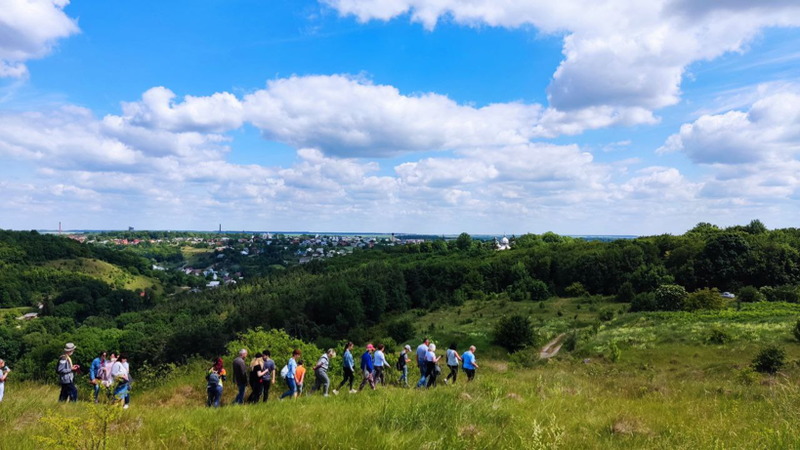
There were also an excursion by the castle guide in the fascinating Zbarazh castle erected in the seventeenth century and two excursions provided by the Tourist Department of Zbarazh city council, one in the city and another in and around the orthodox Spaso-Preobrazhenska Church. I am very grateful to the Zbarazh city head, Roman Polikrovskyi and the head of the tourist department Ruslan Pidstavka for their kind help and assistance[2].
Talks in Oxford
In July 2022, I was invited to Oxford thanks to a prominent naval historian Dr Nicholas A. M. Rodger, with whom I had been in contact for more than ten years, and his wife, Susan Rodger, for this great opportunity. They are very kind people and friends of mine. They both became my hosts in Oxford within the CARA programme established by the British government for at-risk researchers. The University of Oxford was now my host institution in the UK, while the British Academy made me its researcher-at-risk fellow.
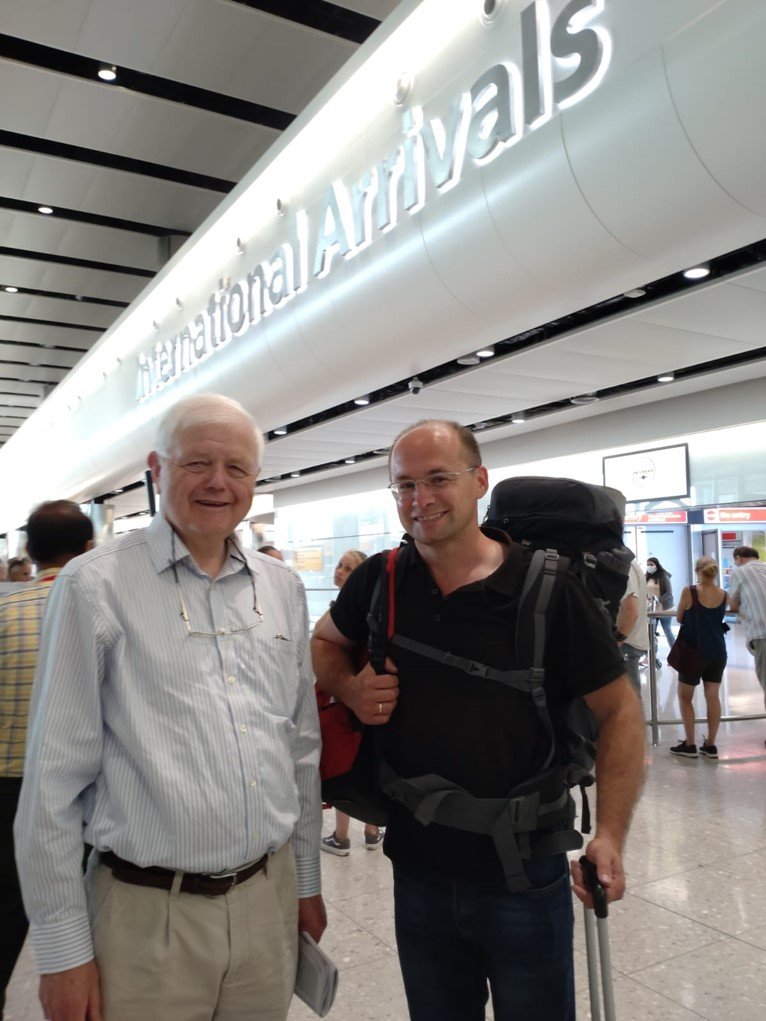
In Oxford, I gave a talk at the OxPeace conference and a seminar at Linacre College to withstand Russian historical fakes and promote the pro-Ukrainian opinion [3].
My talks mainly focused on medieval history as a point for debunking historical misconceptions that benefit one state at the expense of another. It primarily concerns the issues affecting not only Ukraine's international image, making her culture impoverished, but Ukraine’s very security, since those myths are used to inspire the Russians to attack Ukraine and justify the imperialistic claims of Vladimir Putin in gathering so-called Russian lands.
One talk was about the history of Kharkiv, my native city, given at the inauguration meeting of the Oxford-Kharkiv Association (OKA), a society of volunteers [4].
The Ukrainian academia at Oxford
All the events in Oxford are international, with the audience of people from different continents, so their impact is more than local or national. The Oxford environment is excellent for activities in public diplomacy. So, naturally, other Ukrainian scholars who settled there steered their work in this direction.
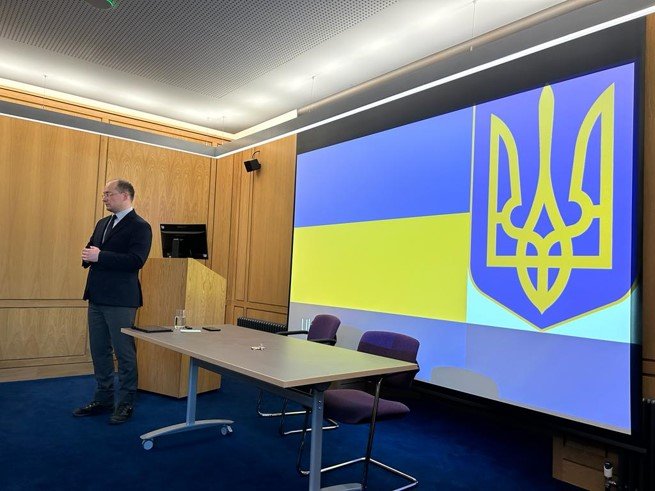
My public seminar at Linacre College would have been impossible without the organisational support of Dr Nadiya Ivanenko, a philologist, a research fellow of Linacre College in Oxford [5]. She launched a series of Ukrainian culture seminars at Linacre and gave public talks on the history of Ukraine. Dr Ivanenko also set up several fundraising and public events, including the one devoted to the outstanding Ukrainian poet Taras Shevchenko.
Meantime, Dr Daria Tsymbaliuk, a Max Hayward Visiting Fellow at St Antony’ College, set up another series of seminars on Ukrainian modern culture covering topics from contemporary painting and the history of Kharkiv photography to club life in Kyiv [6].
People who presented their impressive talks in Linacre and St. Antony’s colleges either in seminars or in lectures mostly were Ukrainian scholars and journalists. It was amazing to listen to Mykhailo Yakubovych, Olesia Khromeichuk, Olha Tokariuk and others. One of those speakers was historian Dr. Kateryna Dysa, who was hosted with me by All Souls College [7].
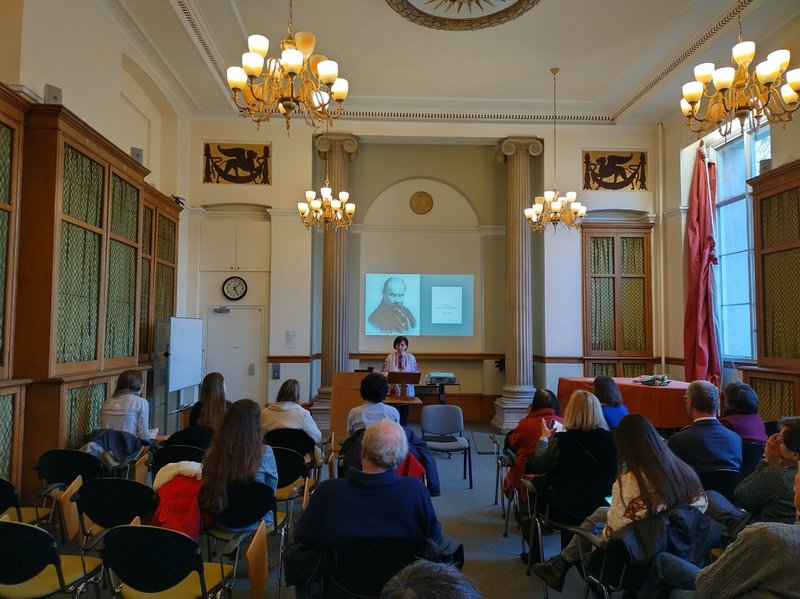
And, of course, there was a brilliant talk, “Ukrainian Story: Getting out of the shadow in the spotlight of war" by Dr Oksana Zabuzhko, in the Bodleian Library.
Conclusion
Through my experience and the experiences of others, one can see an array of activities that academia can do to counter Russian aggression. In all instances, the synergy of many people made projects alive and valuable. Collective efforts of participants in Zbarazh produced the speaking club and historical excursions, providing psychological relief for the displaced people. Collective efforts of Ukrainian scholars and journalists in Oxford made Ukrainian public diplomacy sounder. As Dr. Oksana Zabuzhko opines, Ukraine must be a recognisable part of the European cultural landscape and beyond, not just a country worthy of mentioning when it is on the news. Otherwise, Putin would find it more accessible to manipulate information and represent Ukraine as nothing but a historical territory of Russia with a Nazi regime on it [8].
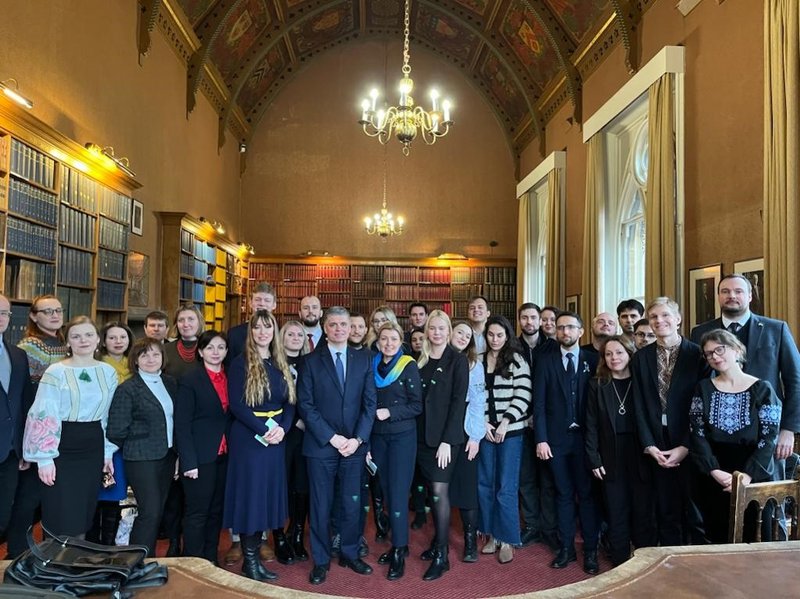
I hope our modest contributions in the social sphere make people more psychologically resistant, and our efforts in public diplomacy make Ukraine’s image and culture more visible to the world and, therefore, more resistant to the Rashist manipulations.
